TEXAS A&M at SXSW 2021
March 16 - 20
Texas A&M is the only university at SXSW’s Online Conference delivering comprehensive programming by incorporating high-profile thought leaders in compelling discussions and one-of-a-kind virtual exhibits. SXSW gives the country’s second largest university (with more than 70,000 students) the opportunity to illustrate its interdisciplinary research in front of an international crowd, as well as Fortune 500 recruiters who hire our students.
Event OverviewTexas A&M returns to SXSW as it welcomes NASA innovators, technology leaders and preeminent legal minds to explore the university’s 70-plus years of space research through conversations and virtual exhibits.
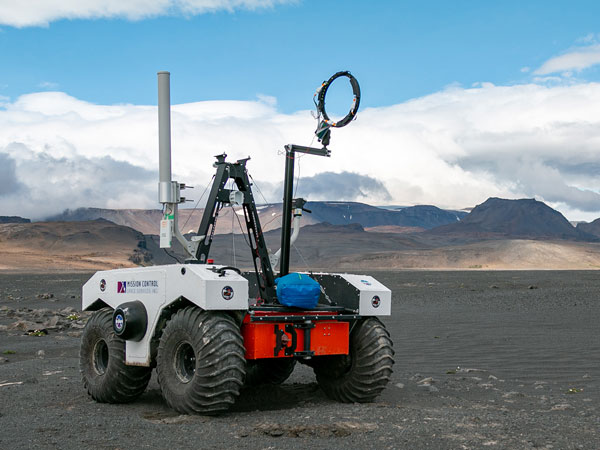

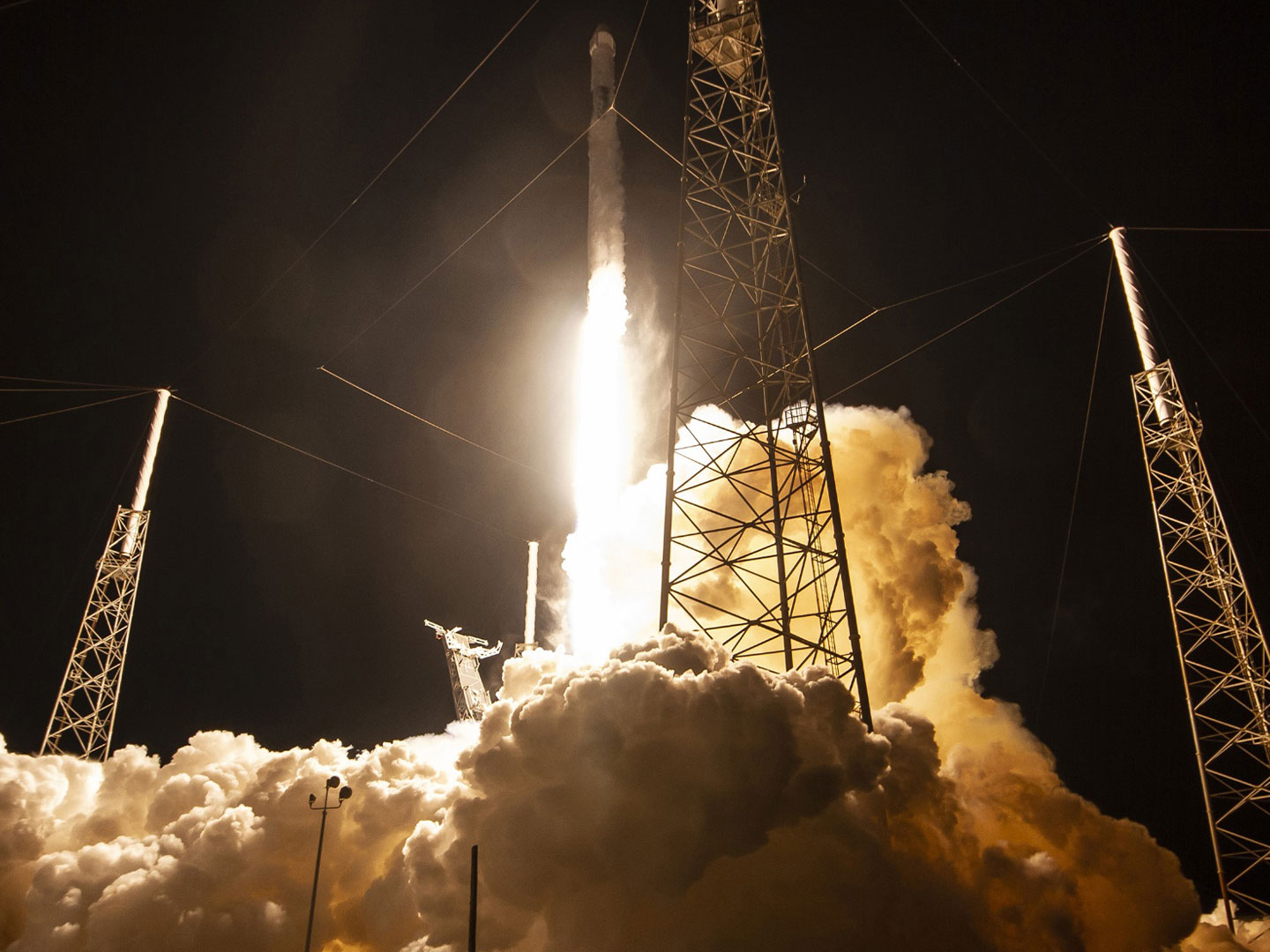
Schedule
Texas A&M continues to unlock humankind’s potential on Earth and beyond with new ideas and innovations, along with solutions to the world’s greatest challenges. Experts from Texas A&M and across the nation will share insights into the future of space travel, building sustainable life in outer space and whether anyone can lay claim to renting billboards in space, or even on other planets (don’t laugh — some are trying!).
Who on Earth should Govern Space?
Who will make the rules once out of the Earth’s orbit? Can any commercial space company attempt to colonize Mars? A university president, the former director of space flight policy at SpaceX and an expert on the ownership of artifacts discovered in space confer with an editor and Pulitzer Prize finalist.
John L. Junkins, Ph.D.
Interim President, Distinguished Professor of Engineering, Texas A&M University
Michelle Hanlon
Associate Director, Center for Air and Space Law, University of Mississippi School of Law
Caryn Schenewerk
Vice President, Regulatory and Government Affairs, Relativity Space
Beth Daley
Editor, The Conversation
Pushing our Bodies and Minds Beyond the Limits
If the future of humankind relies on space, many believe that the mental challenges can be overcome, but what about our Earth-friendly bodies in such weightlessness? A former astronaut and a sport psychologist discuss the possibilities of long-term human presence in space.
Ryan Pittsinger, Ph.D.
Director, Counseling and Sport Psychology Services Texas A&M University
Jamie Stockwell
Deputy National Editor, The New York Times
Bonnie Dunbar, Ph.D.
Former NASA Astronaut
Director, Aerospace Human Systems Laboratory, Texas A&M University
Lunar Village: The Future of Space Exploration
Four leading technologists and construction experts discuss with authority the feasibility of building a life-sustaining environment on other planets, along with creating zero-gravity live-work quarters. This is where space architecture, construction, robots and engineering intersect.
Rob Mueller
Senior Technologist, Kennedy Space Center
Co-Founder, Swamp Works
Peter J. Carrato
Senior Advisor, Bechtel
Pat Suermann, Ph.D.
Department Head, Construction Science, Texas A&M University College of Architecture
Nicole Shumaker
Research Specialist, Texas A&M University
Media
All Texas A&M SXSW panel discussions will be staffed by the Division of Marketing and Communications. They will coordinate interviews, as well as videography and photography.
Inquiries can be emailed to tamunews@tamu.edu with "TAMU SXSW" in the subject line, please.
Space research started at Texas A&M before NASA was created. Here are some of our stories.
Archive
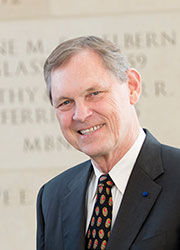
John L. Junkins, Ph.D.
Interim President, Distinguished Professor of Engineering
Texas A&M University
John L. Junkins became the interim president of Texas A&M University on January 1, 2021.
A nationally renowned educator, inventor, and aerospace engineer, Junkins combines 35 years of experience at Texas A&M with a track record as a collaborator and consensus builder who has worked with a wide array of constituents, ranging from faculty and staff to students and former students.
Before being named interim president, he served as a University Distinguished Professor of Aerospace Engineering and holder of the Royce E. Wisenbaker Chair in Innovation.
He is also the founding director of the Hagler Institute for Advanced Study, an innovative interdisciplinary effort that brings some of the world’s most prominent scholars to collaborate with Texas A&M students and faculty.
Junkins launched his own research career as an undergraduate at age 19, serving as a co-op student during the historic Apollo program at the National Aeronautics and Space Administration. Throughout his career, he has consulted with industry and government, and his basic research results have helped support more than a dozen space missions. A distinguished scholar, researcher, teacher, and mentor, Junkins has used his personal knowledge and experience to serve others, helping to guide and develop two generations of professors and three generations of Ph.D. students, who have collectively had an immense influence on the field of aerospace engineering and are considered a significant national resource.
Junkins joined the Texas A&M faculty in 1985 as the first endowed chair holder in the College of Engineering, previously holding academic appointments at the University of Virginia and Virginia Polytechnic Institute.
The author of more than four-hundred papers and eight widely used technical books, he is a member of the National Academy of Engineering, the National Academy of Inventors, the International Academy of Astronautics, and an Honorary Fellow of the American Institute for Aeronautics and Astronautics.
Throughout his long and inspiring career, he has received more than a dozen international recognitions for his research, including the highest honor in his field, the Robert H. Goddard Astronautics Award.
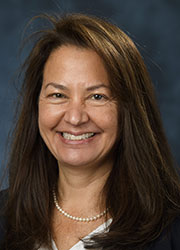
Michelle Hanlon
Associate Director, Center for Air and Space Law
University of Mississippi School of Law
Michelle is co-founder and President of For All Moonkind. She leads all legal efforts, with particular emphasis on space law. Michelle is also Co-Director of the Center for Air and Space Law and an instructor of aviation and space law at the University of Mississippi School of Law. Michelle received her B.A. in Political Science from Yale College and her J.D. magna cum laude from the Georgetown University Law Center. She earned her LLM in Air and Space Law from McGill University where the focus of her research was commercial space and the intersection of commerce and public law.
Prior to focusing on space law, Michelle was engaged in a private business law practice. Her legal career commenced with the restructuring of sovereign debt for a number of South and Latin American countries and evolved into the negotiation and implementation of cross-border technology mergers and acquisitions. Her subsequent solo practice advised entrepreneurs across four continents on all aspects of bringing their innovative ideas to market: from basic corporate formation to financings and buyouts.
Michelle is also a founding partner of ABH Aerospace, LLC a consulting firm which provides advice and counsel in respect of all aspects of air, space and cyber law. She is the Editor-in-Chief of the Journal of Space Law and Chair of the International Committee of the National Space Society and Co-Chair of the Cultural Considerations Working Group of the Moon Village Association.
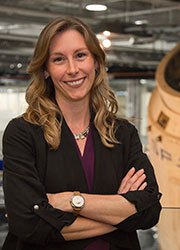
Caryn Schenewerk
Vice President for Regulatory and Government Affairs
Relativity Space
Professor Schenewerk is Vice President for Regulatory and Government Affairs at Relativity Space where she leads regulatory efforts and policy engagement with all branches and levels of government. Prior to joining Relativity, Prof. Schenewerk spent nearly a decade at SpaceX, most recently as Senior Counsel and Senior Director of Spaceflight Policy. She has extensive experience working with U.S. Government agencies on space launch and recovery operations, particularly licensing for commercial launches and reentries. She has also supported NASA contracts for commercial crew and cargo carriage to the International Space Station. She has represented the Commercial Spaceflight Federation as a member of the U.S. delegation to the United Nations Committee on the Peaceful Uses of Outer Space. Prior to working in the space industry, Schenewerk served as Deputy Associate Director for Legislative Affairs at the Office of Management and Budget in the Executive Office of the President. She Schenewerk has held positions as Counsel, Policy Director and Deputy Chief of Staff on Capitol Hill and is a member of the New York and D.C. bars.
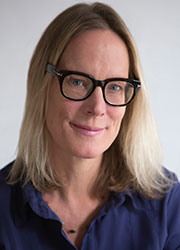
Beth Daley
Editor
The Conversation
Beth Daley comes to The Conversation U.S. from a leadership position at InsideClimate News. A Pulitzer Prize finalist for climate reporting at the Boston Globe, she also worked at the New England Center for Investigative Reporting as a reporter and director of partnerships. As Director of Strategic Development at InsideClimate, she worked to diversify the Pulitzer Prize-winning news outlet's revenue stream. Daley attended Stanford University as a John S. Knight Journalism Fellow in 2011/2012.
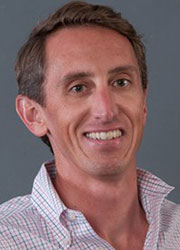
Ryan Pittsinger, Ph.D.
Director, Counseling and Sport Psychology Services
Texas A&M Athletics Department
Ryan Pittsinger, Ph.D. joined the Athletics Department in 2016 and serves as Assistant Athletic Director and Director of Counseling and Sport Psychology Services. In his role, Pittsinger serves the needs of all student-athletes by honoring the unique demands and experiences they are often faced with and striving to offer support in meaningful ways that is tailored to each student-athlete’s specific needs.
Pittsinger completed his Bachelor’s degree in Psychology from the University of Utah and Master’s degree in Sport Psychology from California State University, Long Beach. He earned a Ph.D in Counseling Psychology from the University of Iowa, where he worked in the Athletic Department, in addition to teaching sport psychology and resiliency courses in the Kinesiology Department.
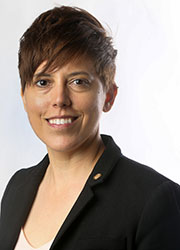
Jamie Stockwell
Deputy National Editor
The New York Times
Jamie is a South Texas native whose family has been in the area since the days when it was Mexican territory. Most of her ancestors are from Northern Mexico and she spent many summers and weekends at her grandparents’ cattle ranch.
A graduate of the University of Texas at Austin (which also produced Jake Silverstein, John Schwartz and Amy Chozick), Jamie began her journalism career at The Washington Post, where she covered criminal justice and was a lead reporter on the Beltway sniper case in 2002.
Note to those in the Running Club, you have a new member. Jamie has finished three marathons and more than a dozen half-marathons and will be looking for running partners. She’s also an avid sports fan, particularly the Spurs and the Astros, and plans to be at some Knicks, Nets, Yankees and Mets games, albeit in Texas garb.
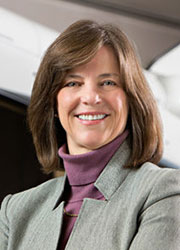
Bonnie Dunbar, Ph.D.
Former NASA Astronaut
Director, Aerospace Human Systems Laboratory
Texas A&M University
Dunbar is a retired NASA astronaut, engineer and educator, currently with Texas A&M Engineering as a Texas A&M Engineering Experiment Station (TEES) Distinguished Research Professor in the Department of Aerospace Engineering. She also has a joint appointment as the Director of the TEES Institute for Engineering Education and Innovation (IEEI), and serves as director of the Aerospace Human Systems Laboratory.
Dunbar, who is a member of the prestigious National Academy of Engineering, came to Texas A&M from the University of Houston where she was an M.D. Anderson Professor of Mechanical Engineering. There she provided leadership in the development of a new integrated university science, technology, engineering and mathematics (STEM) center and was director of the Science and Engineering Fair of Houston. She also directed the Sasakawa International Center for Space Architecture’s Space Architecture and Aerospace graduate programs. She has devoted her life to furthering engineering, engineering education and the pursuit of human space exploration.
Dunbar worked for the Rockwell International Space Division Company, building Space Shuttle Columbia and worked for 27 years at NASA, first as a flight controller; then as a mission specialist astronaut, where she flew five space shuttle flights, logging more than 50 days in space; and then served for seven years as a member of the Senior Executive Service. Her executive service included assistant NASA Johnson Space Center director for university research; deputy director for Flight Crew Operations; associate director for International Space Station Mission Operations development, and as NASA headquarters deputy associate administrator for the Office of Life and Microgravity Sciences and Applications.
After retiring from NASA, Dunbar became president and CEO of The Museum of Flight in Seattle, Washington, where she established a new Space Gallery and expanded its K-12 STEM educational offerings. She has also consulted in aerospace and STEM education as the president of Dunbar International LLC, and is an internationally known public speaker.
Dunbar holds bachelor’s and master’s degrees in ceramic engineering from the University of Washington and a Doctor of Philosophy in mechanical/biomedical engineering from the University of Houston. She is a Fellow of the American Ceramic Society, the American Institute of Aeronautics and Astronautics, and the Royal Aeronautical Society. She has been awarded the NASA Space Flight Medal five times, the NASA Exceptional Leadership Medal and the NASA Distinguished Service Medal. Dunbar was inducted into the Royal Society of Edinburgh, and in 2002 was elected to the U.S. National Academy of Engineering. In 2012 she was elected into the Association of Space Explorers (ASE) International Executive Committee, and in 2013 she was selected into the Astronaut Hall of Fame. She is currently president of the ASE.

Robert Mueller
Senior Technologist
Exploration Research and Technology Programs
Rob Mueller is a senior technologist for Advanced Products Development in the Exploration Research and Technology Programs Directorate at NASA's Kennedy Space Center in Florida. He is the co-founder of the NASA Swamp Works innovation labs and the Kennedy Granular Mechanics & Regolith Operations (GMRO) Lab. He is also Kennedy's lead for Autonomous-Robotic Systems involved with In-Situ Resource Utilization (ISRU).
Mueller is a former chairman of the American Society of Civil Engineers (ASCE) Committee for Regolith Operations, Mobility and Robotics, and former chairman of the ASCE Aerospace Division Executive Committee. He is a member of the American Institute for Aeronautics and Astronautics (AIAA) Space Resources Technical Committee. In 2010, Rob Mueller was the co-founder of the annual NASA Robotic Mining Competition for Universities and continues as the head judge for this competition to this day.
Technical expertise includes robotics, mechanical systems design, composite materials, in-situ resource utilization (ISRU), planetary outpost construction, surface and ground operations, conceptual systems design and mission architecture design. He has worked on the Space Shuttle, International Space Station, X-33, Atlas V, Orbital Space Plane, Second Generation Reusable Launch Vehicles, Mars Exploration Studies and Lunar Exploration programs. More recently, Mueller has been leading the development of technologies required for planetary surface systems, including developing the specifics of lunar, asteroid and Mars regolith excavation, mining and other robotic surface support equipment.
Rob Mueller has worked for NASA at Kennedy Space Center, Johnson Space Center and the Jet Propulsion Laboratory. He was awarded a Bachelor of Science in mechanical engineering from the University of Miami in 1988 and a Master (MSSE) of International Space Systems Engineering from the Technical University of Delft in the Netherlands in 2006, as well as a Master of Business Administration (MBA) from the Florida Institute of Technology in 1994. Mueller has 28 years of engineering and management experience in the space industry and has been the recipient of numerous NASA awards, including the astronaut's personal achievement "Silver Snoopy" award, a NASA Silver Achievement Medal and the NASA Exceptional Achievement Medal. He has been awarded four U.S. patents for new technology inventions.

Peter Carrato
Senior Advisor
Bechtel
Before joining Ellis Global, Pete served as a Corporate Fellow in Civil Engineering for the Bechtel Corporation where, as the subject matter expert in civil and structural engineering, he played a key role in all phases of project delivery, from estimating and design through start-up and commissioning. He also provided due diligence analyses to Bechtel’s senior management on prospective projects, and helped resolve conflicts with owners, regulators, suppliers and sub-contractors.
At Bechtel, Pete was also Corporate Manager of Building Information Modeling (BIM) and Virtual Design and Construction, where he evaluated technologies and developed their implementation strategy across all five of the company’s global business units.
With extensive experience in the power industry, Pete has provided structural engineering insights on a variety of projects in the fossil power, solar, and nuclear fields. He has also delivered technical oversight and structural assessment for some of the largest global infrastructure projects including airports, transit systems, and sports arenas.
Pete also served as an associate professor of civil engineering at his alma mater, Bucknell University.
As one of the industry’s leading technology evangelists, he has authored dozens of white papers and presentations.
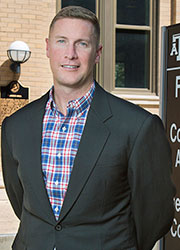
Pat Suermann
Department Head, Construction Science
Texas A&M University College of Architecture
Patrick Suermann, who led numerous, large-scale military construction projects around the world and excelled as an educator during a distinguished 20-year career as a U.S. Air Force officer, is the new head of the Texas A&M Department of Construction Science.
A 2003 Texas A&M Master of Construction Management graduate, Suermann also earned a Ph.D. in Design, Construction, and Planning at the University of Florida in 2009 and a Bachelor of Civil Engineering degree at the U.S. Air Force Academy in 1997.
Before concluding his military career this year, Suermann served as chief of emergency services and engineering at an Air Force mission support center in San Antonio, where he coordinated more than 700 personnel while managing $16 billion in fire emergency services, emergency management and explosive ordnance disposal projects around the world.
On a seven-month assignment in Afghanistan, he oversaw 17 military and civilian contractors on a $1 billion facilities construction program that included building an airfield in a combat zone with the help of almost 1,000 Afghan nationals.
He also served for a year at the Air Force’s most remote station, Thule Air Base in Greenland, where he supervised more than 500 military and civilian personnel who provided engineering, medical, communication, logistics and airfield operations.
At the Air Force Academy, Suermann taught building information modeling, computer-aided design, construction processes, project delivery and civil engineering.
His numerous teaching honors include a 2016 Region VI Award from the Associated Schools of Construction and a 2006 Outstanding Educator Award from the Air Force Academy.
Suermann has lectured at Texas A&M, the University of Florida and the University of Texas, and coached successful student teams from all three institutions and the Air Force Academy in Associated Schools of Construction competitions.
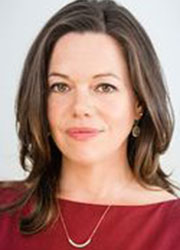
Nicole Shumaker
Research Specialist
Texas A&M University
Shumaker combines formative training in experimental atmospheric research and nearly 20 years of high-tech industry experience with a drive to bring game-changing space-industry innovations out of the laboratory and in to real life. She matches needs with capabilities across internal and external groups in the fields of Architecture, Construction Science, Geology/Geophysics, Chemistry, Civil, Aerospace, Materials and Industrial Engineering to pursue sponsored research opportunities with NASA, DoD, DoE, NSF and industry partners. She develops strategy and provides hands-on execution to assemble teams and bring about projects related to lunar and terrestrial construction research and development. Shumaker currently serves as Program Manager for the Texas A&M Lunar Surface Experiment Program (funded by the X-Grant).
Her prior experience includes Zero-G parabolic flight experiments for regolith mechanics and PV-array performance; arctic permafrost monitoring systems; building information modeling (BIM) for vertical and horizontal infrastructure; LEED design; building performance analysis; computational fluid dynamics (CFD) for factory and data center HVAC design; green infrastructure for storm water management; and reality capture (LIDAR, photogrammetry) for facility operations (incl. AR/VR). She is co-author on patent titled “Multi-point digital temperature acquisition systems.”